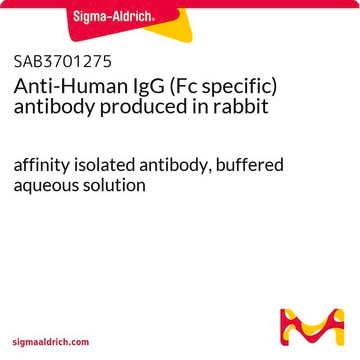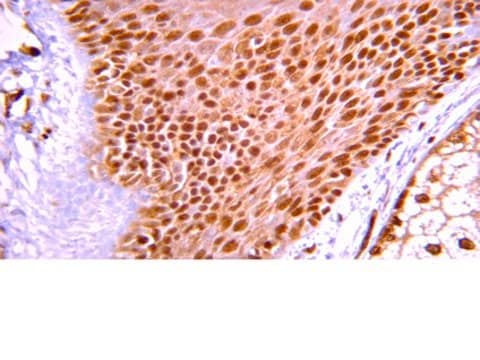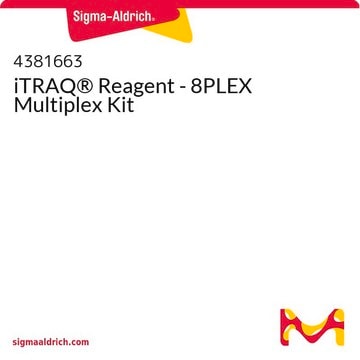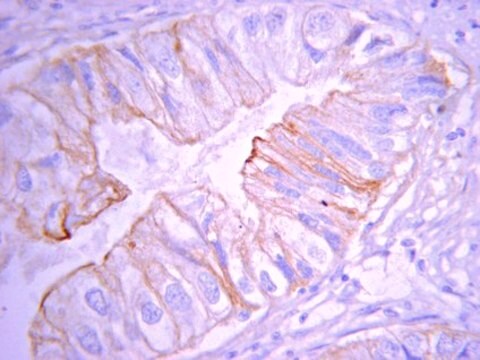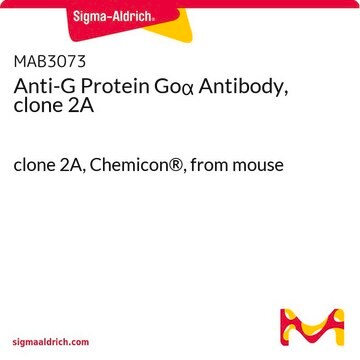04-478
Anti-phospho-STAT1 (Ser 727) Antibody, clone 12C5
clone 12C5, Upstate®, from mouse
About This Item
Produtos recomendados
fonte biológica
mouse
Nível de qualidade
forma do anticorpo
purified immunoglobulin
tipo de produto de anticorpo
primary antibodies
clone
12C5, monoclonal
reatividade de espécies
human
fabricante/nome comercial
Upstate®
técnica(s)
ELISA: suitable
western blot: suitable
Isotipo
IgG1
nº de adesão NCBI
nº de adesão UniProt
Condições de expedição
wet ice
modificação pós-traducional do alvo
phosphorylation (pSer727)
Informações sobre genes
human ... STAT1(6772)
Especificidade
Imunogênio
Aplicação
Epigenetics & Nuclear Function
Transcription Factors
Qualidade
Descrição-alvo
forma física
Armazenamento e estabilidade
Informações legais
Exoneração de responsabilidade
Not finding the right product?
Try our Ferramenta de seleção de produtos.
Código de classe de armazenamento
10 - Combustible liquids
Classe de risco de água (WGK)
WGK 2
Certificados de análise (COA)
Busque Certificados de análise (COA) digitando o Número do Lote do produto. Os números de lote e remessa podem ser encontrados no rótulo de um produto após a palavra “Lot” ou “Batch”.
Já possui este produto?
Encontre a documentação dos produtos que você adquiriu recentemente na biblioteca de documentos.
Nossa equipe de cientistas tem experiência em todas as áreas de pesquisa, incluindo Life Sciences, ciência de materiais, síntese química, cromatografia, química analítica e muitas outras.
Entre em contato com a assistência técnica